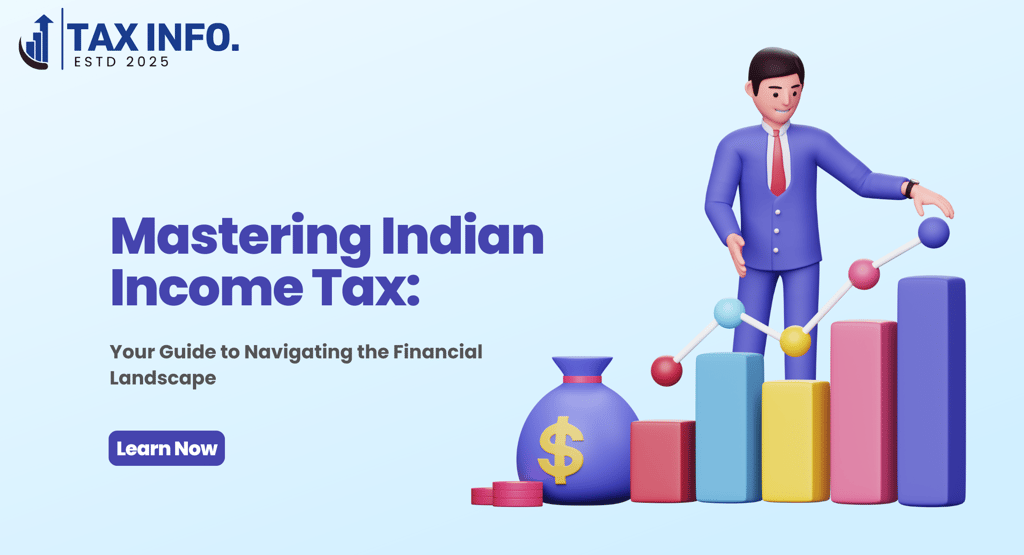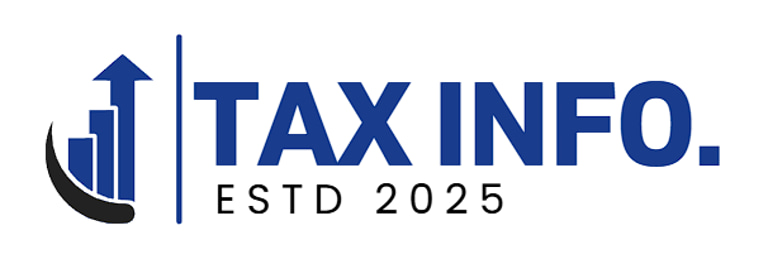Mastering Indian Income Tax: Your Guide to Navigating the Financial Landscape
This article provides insights into the latest tax developments, efficient tax filing strategies, and legal ways to minimize your tax liability in India.
8/12/20254 min read


India's tax landscape is continuously evolving, with the government aiming to simplify the system and ease the burden on taxpayers. The recent Budget 2025 introduced significant changes for the Financial Year 2025-26, making it crucial for individuals and businesses alike to stay informed. This article provides insights into the latest tax developments, efficient tax filing strategies, and legal ways to minimize your tax liability in India.
Key Changes and the New Tax Regime (FY 2025-26)
The new tax regime, now the default option, aims for simplicity with lower tax rates but fewer deductions. However, individuals can still opt for the old tax regime if it's more beneficial given their investments and expenses.
Here's what you need to know about the new regime for FY 2025-26:
Higher Basic Exemption Limit: The tax-free income threshold has been raised to ₹4 lakh for individuals.
Enhanced Rebate under Section 87A: The rebate has been increased to ₹60,000 for taxable incomes up to ₹12 lakh, making this income range effectively tax-free.
Revised Tax Slabs: The new regime features adjusted tax slabs, aiming to offer relief to middle-income earners. For example, income between ₹4 lakh and ₹8 lakh is now taxed at 5%.
Standard Deduction for Salaried Individuals: Salaried employees can claim a standard deduction of ₹75,000, bringing the tax-free income threshold to ₹12.75 lakh under the new regime.
Important Note: The increased rebate and other benefits under the new regime might not apply to certain special rate incomes like Long-Term Capital Gains (LTCG) on listed equity shares or equity-oriented mutual funds.
Efficient Tax Filing: Do's and Don'ts
Accuracy and timely filing are crucial to avoid penalties and notices from the Income Tax Department.
Do's:
Gather all essential documents: Keep your PAN Card, Aadhaar Card, Form 16 (for salaried), bank statements, investment proofs, and other relevant documents handy.
Verify Form 26AS: Cross-check your Form 26AS (consolidated tax statement) to ensure all TDS entries are accurately reflected.
Choose the correct ITR form: Select the appropriate ITR form based on your income sources to ensure your return is processed correctly.
Report all sources of income: Disclose all income sources, whether taxable or exempt, to avoid penalties.
Verify the pre-filled details in your ITR: The Income Tax Department pre-fills certain details in your ITR; ensure they are accurate before submission.
File online for convenience: The e-filing portal offers a secure and efficient way to file your ITR.
E-verify your return: Verifying your ITR (through Aadhaar OTP, net banking, etc.) is mandatory after submission.
Don'ts:
Don't wait until the last minute: Plan ahead and start gathering your documents and filing your return early to avoid rushing and potential errors.
Don't ignore the deadline: Missing the ITR filing deadline can result in penalties.
Don't furnish incorrect personal information: Ensure the accuracy of your bank details, mailing address, and TAN for a smooth refund process and to avoid delays in receiving notices.
Don't forget to claim eligible deductions and exemptions: Even if you didn't inform your employer, you can still claim deductions under various sections like 80C and 80D while filing your ITR.
Don't get confused between financial and assessment years: Understand the difference to avoid quoting the wrong assessment year.
Common Deductions and Exemptions for Salaried Individuals
While the new tax regime has restricted many deductions, several are still available to help reduce your taxable income, especially under the old regime.
Under the old regime:
House Rent Allowance (HRA): Claim exemption for a portion of the HRA received, based on salary, rent paid, and city type.
Leave Travel Allowance (LTA): Exemptions for travel expenses incurred during domestic vacations within India, applicable twice in a block of four years.
Section 80C: Deductions up to ₹1.5 lakh for investments in PPF, ELSS, EPF, life insurance premiums, tuition fees, and more.
Section 80D: Deductions for health insurance premiums paid for self, spouse, children, and parents, with limits based on age.
Section 24: Deductions for interest paid on home loans (up to ₹2 lakh for self-occupied, full deduction for let-out property).
Section 80CCD(1B): Additional deduction of ₹50,000 for NPS contributions.
Section 80CCD(2): Employer's contribution to NPS (up to 14% of basic salary + DA for government employees, 10% for others) is deductible over and above the Section 80C limit.
Standard Deduction: A fixed deduction of ₹50,000 (FY 2024-25).
Under the new regime:
Standard Deduction: ₹75,000 for salaried individuals.
Employer's contribution to PF and NPS: Tax-exempt up to ₹7.5 lakh per year.
Interest on home loan for let-out property: Fully deductible from rental income.
Exemptions on gratuity payments and leave encashment.
Strategies to Minimize Your Tax Liability Legally
Beyond standard deductions, exploring smart strategies can further reduce your tax burden.
Maximize Section 80C benefits: Fully utilize the ₹1.5 lakh deduction limit through eligible investments.
Consider NPS contributions: Leverage Section 80CCD for additional tax savings beyond the Section 80C limit.
Invest in health insurance: Section 80D allows deductions on health insurance premiums, safeguarding your health and providing tax benefits.
Utilize home loan benefits: Claim deductions on both principal repayment (under Section 80C) and interest payments (under Section 24).
Claim HRA by paying rent to parents (if applicable): If you live with your parents, paying them rent can enable you to claim HRA deductions.
Optimize investment income through parents or HUFs: Explore avenues like gifting or routing investments through parents or a Hindu Undivided Family (HUF) to potentially benefit from lower tax brackets.
Consider charitable donations: Section 80G offers deductions for donations to approved funds or institutions.
Claim reimbursements for office-related expenses: If your employer reimburses mobile/internet expenses for official use, these are often tax-exempt.
Staying Informed and Seeking Expert Advice
The tax landscape is complex and subject to change. Regularly reviewing updates on tax laws, consulting with a tax professional, and utilizing online resources like the Income Tax Department's e-filing portal can significantly enhance your understanding and ensure accurate and timely compliance. Remember, proactive tax planning and staying informed are key to minimizing your tax liability legally and securing your financial future.
Disclaimer: This article provides general information and should not be considered as professional tax advice. Consult with a qualified tax advisor for personalized guidance based on your specific financial situation and for the latest tax legislation and applicable tax regime.


